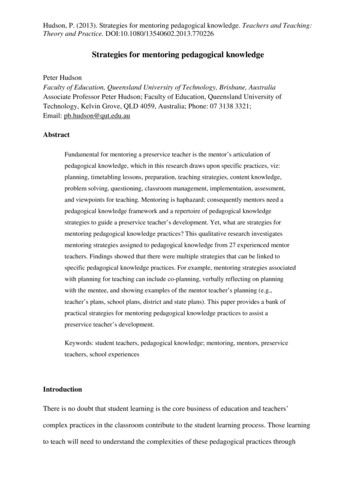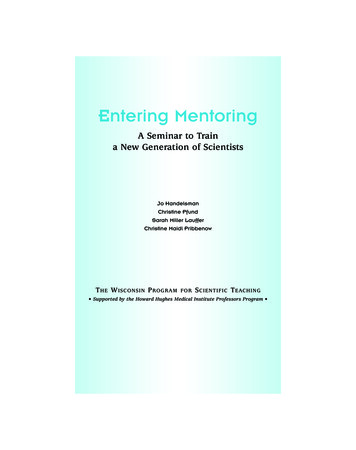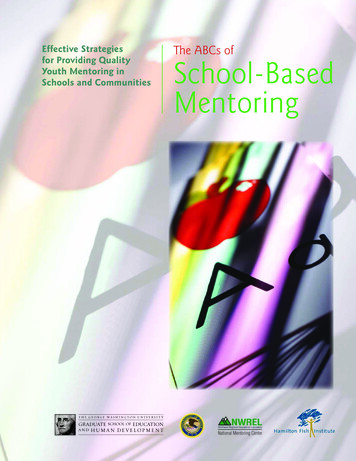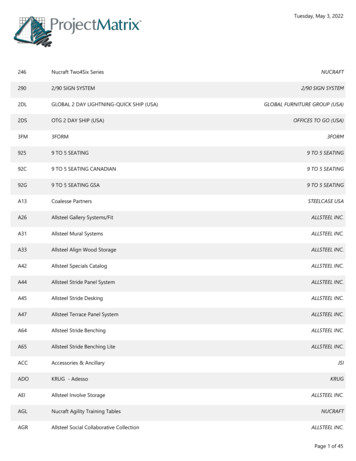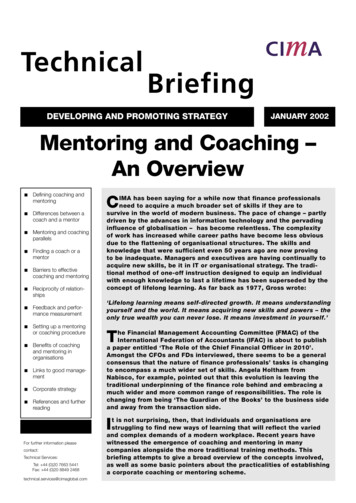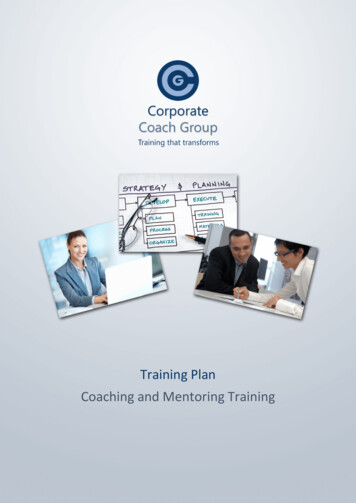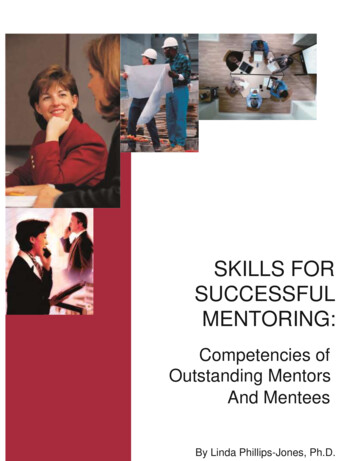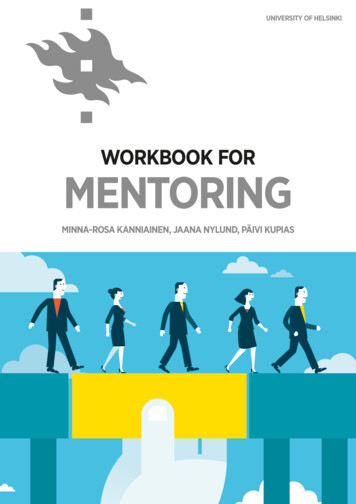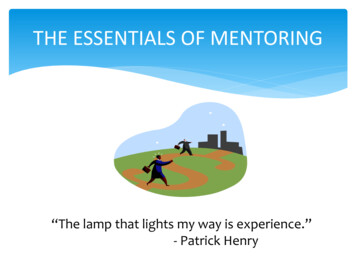
Transcription
THE ESSENTIALS OF MENTORING“The lamp that lights my way is experience.”- Patrick Henry
Purpose of Presentation1. Discuss the benefits of a mentoring program for thementee.2. Define mentoring.3. Describe what a mentor does and define keymentoring practices.4. Review the expectations and the do’s and don’ts ofmentoring.5. Venture through real world scenarios of mentoring.6. Explore communication and active listening skills.
Benefits of Mentoring Programto the Mentee Shortens learning curve Helps socialize to appropriate legal related norms andbehaviors Develops ones professional network Helps to reach a higher level of preparedness Fosters the ability to engage in ethical conduct Develops professional practice, values, and community
What is a Mentor? Teacher Sounding Board Supporter Wise Counselor Listener Coach
Why be a Mentor? The reputation of the legal profession and public trust isinfluenced by each lawyer’s performance. It validates what you know & have accomplished. To pay forward and give back. As lawyers we have a duty to the public to contribute to theadministration of justice and mentoring is a way to fulfill thisresponsibility.
What does a Mentor do? Supports and encouragesAdvises and offers guidanceCreates informal network to help facilitate introductionsProvides feedbackServes as a role model to display appropriate behavior,attitude, and social skills Stimulates knowledge for mentee
Key Mentoring PracticesShared PracticesMentorsFacilitate LearningModelingConfidence mpathyTrustworthinessMenteeInitiativeGoal SettingReceptivitySelf WorthAppreciation
What the Mentee Expectsfrom the Mentor Accept the relationship on atemporary basis or until one orboth decide its time to end it. Meetings as time permits andkeeping the commitment. To be able to ask questions oradvice. Keep confidence and evaluatethe relationship at variouspoints to discuss goals andaccomplishments.
The DO’S and DON’TS of Mentoring
As the Mentor, DON’T Expect the mentee to leadAutomatically give unsolicited advice or criticismAssume your advice will be followedExpect a clone of yourselfMove too quickly to friendship, if at allTake your mentee for grantedAssume she/he does not need reinforcementEnd the relationship on bad terms
As the Mentor, DO Be open to the mentee’s ideas and discuss topicsRespect your mentee’s time as much as your ownKeep your relationship on a professional basisAlways ask if you can make a suggestion or offer critiqueRecognize and work through conflict in a caring way
Real Life Real World Mentoring
Scenario 1Mentee misses an appointment and does not call toexplain.a. Mentor should end relationship.b. Mentor should call the mentee as soon as feasibleand express concern.c. Mentor should make another appointment andexpress concerns when they finally do get together.
Scenario 2Mentee starts confiding serious personal problems to thementor.a. Mentor should try to counsel the mentee about theproblems.b. Mentor should reciprocate with his/her own problemsharing.c. Mentor should suggest that the mentee get someprofessional help.
Scenario 3In the first meeting, the mentee asks the mentor to introducethe mentee to one of the mentor’s important colleaguefriends for the purpose of aiding the mentee career.a. Mentor should say yes since this is part of mentoring.b. Mentor should refuse since this is asking too much.c. Mentor should say this is a good possibility for the future.
Communication and Listening
When conversing with Mentee 1.2.3.4.5.6.Be yourself.Share your experiences and stories.Do not interrupt the mentee to make a point.Keep eye contact to assure the mentee you are activelyengaged in the conversation.Do not be quick to offer a response, sometimes thementee just wants you to listen.Pick an environment that it will be easy to have aconversation and set aside the appropriate time so theconversation is not rushed.
Active Listening Interpret what you heard. Evaluate the informationand decide how you willuse it. React based on what youheard and evaluated.
Purpose Fulfilled We discussed the benefits of a mentoring program for thementee. We defined mentor and explained the role andresponsibilities by way of key mentoring practices. We reviewed expectations and the do’s and don’ts ofmentoring. We took a journey through real life mentoring scenarios. We talked about communication and active listening skills.
MENTORING MATTERS and YOUcan make the Difference!
1. Discuss the benefits of a mentoring program for the mentee. 2. Define mentoring. 3. Describe what a mentor does and define key mentoring practices. 4. Review the expectations and the do's and don'ts of mentoring. 5. Venture through real world scenarios of mentoring. 6. Explore communication and active listening skills.


